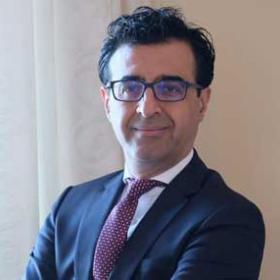
Assessing Upcoming Kurdish Referendum
Masoud Barzani, the president of the Kurdistan Region in Iraq, has said postponing the planned referendum on September 25 is not a possibility. Barzani’s announcement came in a meeting with Kurdish politicians and activists in Erbil one day after talks with U.S. Secretary of State Rex Tillerson regarding postponing the referendum. On August 23, Kurd Connection, a joint program of Voice of America Kurdish Service and NRT, Kurdish Satellite Channel interviewed Kawa Hassan, Director of the Middle East & North Africa Program at EastWest Institute's Brussels Center, who assessed the prospects and challenges of the upcoming Kurdish referendum.
Voice of America (VOA): On Monday, August 21, Masoud Barzani, the president of the Kurdistan Region in Iraq, gave a speech on the Kurdish referendum scheduled for September 25. In this speech, he gave mixed messages about postponing the referendum. On one hand, he said there would be no postponement. On the other hand, he says that postponement is possible if there are guarantees from the U.S. and the UN about relations with Baghdad. What do you make of these mixed messages?
Kawa Hassan (KH): In this interview, Barzani gave his analysis about the referendum. He seems to aim at strengthening the "yes camp,” those who want to vote in favor of the referendum should it be held as planned on September 25.
VOA: Recently a Kurdish delegation visited Baghdad and discussed the referendum issue with Iraqi Prime Minister, political parties, and U.S. and Iranian diplomats. The delegation came back to Erbil and the visit was not seen as successful because the meetings didn't yield any results. Baghdad is opposing the referendum. Can Kurdistan Regional Government (KRG) hold the referendum without the approval of Baghdad? Will the referendum be legitimate?
KH: According to some sources, this meeting is the start of some sort of negotiations between Baghdad and Erbil on the referendum. The delegation also met with the ambassadors of Iran, the U.S., the EU and the UN. Both the U.S. and Iran are heavily engaged behind the scenes in mediating between both parties. Therefore it is too early to say the visit was a failure. The Iraqi government clearly said this referendum is unconstitutional and that they oppose it. The KRG says Baghdad didn’t implement the constitutional clauses that deal with the status of disputed areas (article 140), oil and gas law, and some other issues. Theoretically KRG can hold the referendum. But the question is what would be the implications for relations with Baghdad if Iraqi authorities will not accept the result of the referendum? Will Baghdad's refusal be beneficial or negative for KRG?
VOA: Those Kurds who would vote yes in the referendum say once the referendum is over, and a de facto independent state is declared, Iraq and other states will accept the new de facto state. They cite the examples of Kosovo and South Sudan which gained international recognition after referendum. To what extent is Iraqi Kurdistan's situation similar to South Sudan and Kosovo?
KH: Each region [in the world that wants to hold referendum and declare independence] has a unique situation and therefore we cannot make generalized analysis and assessment. This holds true to both Kosovo and South Sudan cases. The South Sudanese referendum and subsequent independence was one of the results of the 2005 agreement between the Sudanese central government in Khartoum and the Sudan People's Liberation Army/Movement (SPLA/M). Upon the declaration of independence in 2008 [by the Assembly of Kosovo], Kosovo was soon recognized as a sovereign state by many countries in the world. And in other cases, where regions hold referendum and announced independence, they were not recognized (by the overwhelming majority of international community).
To listen to the full interview (in Kurdish), click here

